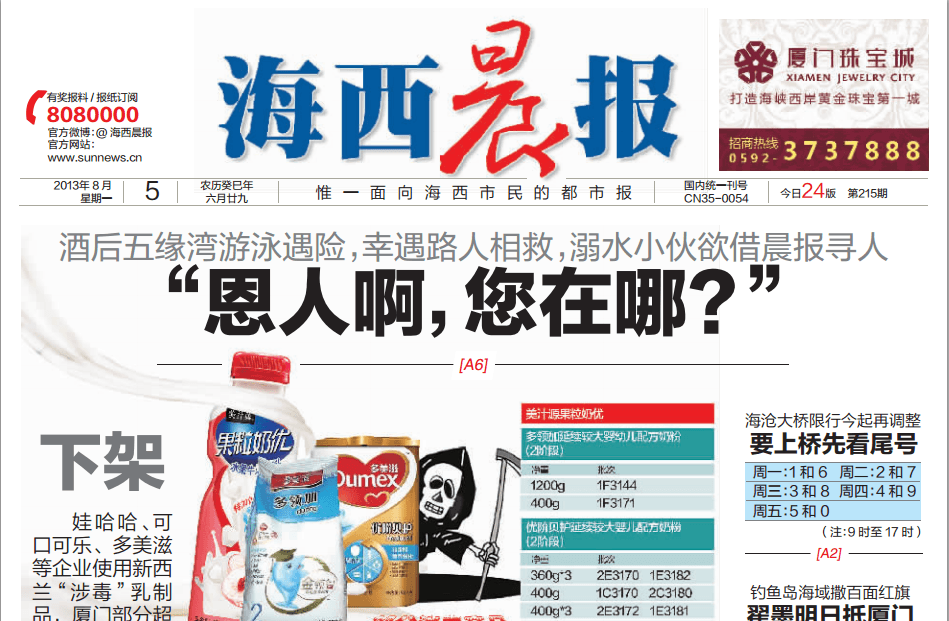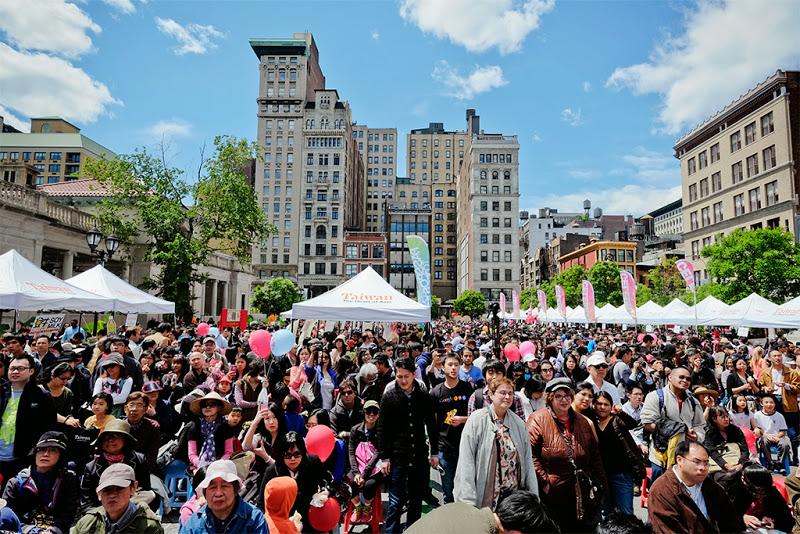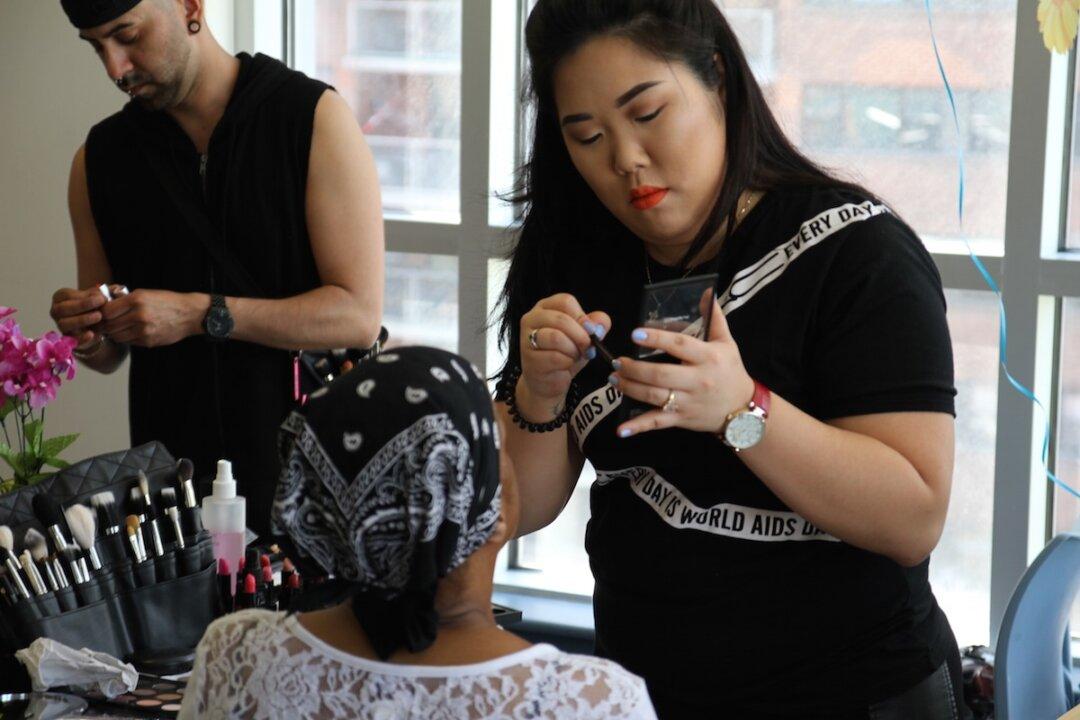The day before a high-profile recall of foreign milk powder brands on Aug. 6, Chinese state-run media went on the attack, casting the matter of which milk powder one buys in strongly nationalistic terms.
“Are you still kowtowing to foreign milk powder?” asked the state-run Chengdu Evening News, as other city newspapers ran graphics of bacteria. Xiamen’s West Strait Morning Post on Monday even featured a grim reaper lurking behind foreign infant formula bottles, according to Danwei, a company that analyses Chinese media.
Shanghai University professor Gu Junren was quoted by the Evening News saying that foreign milk powder has fallen off its “divine altar” and domestic dairy products should work hard to replace them.
An opinion piece in the state-run Global Times said that Chinese consumers’ preference for foreign goods “is discrimination and means that Chinese people have self-contempt.”
“Quality control problems don’t just stop at the nation’s border—whoever still has blind faith in foreign brands must wake up!” the article said. “Our government must fully support national produce and be the nation’s leader in consuming Chinese products.”
A day after the recall of Fonterra’s infant formula on Aug. 6, the chief executive of the New Zealand dairy giant said that the risk of poisoning had been resolved.
Bacteria from dirty pipes at a Fonterra factory in New Zealand’s Waikato farming district in May 2012 turned up in testing samples in March, but it took until July 31 for testing to indicate the presence of the strain of bacteria that could cause botulism, also known as food poisoning.
Chinese netizens on Sina Weibo, China’s Twitter-like platform, were not persuaded by the media campaign, with many mentioning China’s own history with poisoned milk powder.
Tainted local milk formula killed six babies and sickened 300,000 in 2008, fueling Chinese consumers’ willingness to pay a premium for New Zealand infant formula because of high food safety standards and the popular image of the country as a remote, unspoiled environment.
“If we want safe Chinese milk powder, the producer must be trustworthy. Wasting time trying to make other countries’ milk powders look poisonous isn’t the way to do it!” a famous Chinese actor, Sun Haiying, wrote on Weibo.
“After the government banned New Zealand milk powder today, I looked at my store record and found that I’ve sold a lot more Japanese milk powder,” commented Wuyuesanren, an online shop owner with over 900,000 followers, “I understand now that no one wants to give their children Chinese milk powder. Their money goes to who they support.”
“The words ‘poisoned milk powder’ are plastered all over the headlines. It’s like the pot calling the kettle black,” said Yule, a netizen from Guangdong Province. “If you asked Chinese people to choose between New Zealand milk powder and Chinese milk powder, I believe New Zealand milk powder would be more popular. We probably have already become immune to any poisons by now.”
Epoch Times staff member Lu Chen and The Associated Press contributed to this report.
Ban of Milk Powder in China Comes With Dose of Media Vitriol
Chinese state-run media attacked New Zealand milk powder firm, Fonterra, on Monday for poisonous milk powders.

A screengrab of Xiamen’s West Strait Morning Post front page on August 5, 2013 that featured a grim reaper lurking behind foreign infant formula bottles. Chinese state-run media attacked New Zealand milk powder firm, Fonterra, on Monday for poisonous milk powders. West Strait Morning Post
|Updated:



